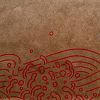Tracks featured on
Most played tracks
Thanks!
Your suggestion has been successfully submitted.
LD and guests deliver a slice of realness via jazz, fusion, deep soul, funk, warm techno and the rest. Expect music you can move to from the long-time DJ and producer.
A two hours overview of Detroit jazz labels and artists, featuring music from Ade Olatunji, Ursula Walker, Wendell Harrison and others.
Sign up or log in to MY NTS and get personalised recommendations
Support NTS for timestamps across live channels and the archive
Alabama songster and harmonica player Horace Sprott was born February 2, 1890, the son of former slave Bessie Ford, and his surname was taken from the Sprott Plantation where he was born. He took up guitar and harmonica and was soon playing a mix of blues, work songs, spirituals, and old slave songs at local functions and parties in the area. Sprott reportedly got himself into some trouble, however, and ended up spending a stretch at a prison work farm in Montgomery. Folkways researcher Frederic Ramsey encountered Sprott in Marion, AL, in 1954, and impressed with the musician's varied repertoire, which included several a cappella set pieces, recorded him in seven sessions held in April and May of that year. These field recordings were edited down to form an LP, which was released in 1954 by Folkways Records. The album caused a brief stir in the folk world, and Sprott even ended up making an appearance on television for CBS in 1956, but a substantive career as a performer never really took shape, and Sprott drifted away into the haze of blues history, reportedly passing away in the early '90s.
Alabama songster and harmonica player Horace Sprott was born February 2, 1890, the son of former slave Bessie Ford, and his surname was taken from the Sprott Plantation where he was born. He took up guitar and harmonica and was soon playing a mix of blues, work songs, spirituals, and old slave songs at local functions and parties in the area. Sprott reportedly got himself into some trouble, however, and ended up spending a stretch at a prison work farm in Montgomery. Folkways researcher Frederic Ramsey encountered Sprott in Marion, AL, in 1954, and impressed with the musician's varied repertoire, which included several a cappella set pieces, recorded him in seven sessions held in April and May of that year. These field recordings were edited down to form an LP, which was released in 1954 by Folkways Records. The album caused a brief stir in the folk world, and Sprott even ended up making an appearance on television for CBS in 1956, but a substantive career as a performer never really took shape, and Sprott drifted away into the haze of blues history, reportedly passing away in the early '90s.
Thanks!
Your suggestion has been successfully submitted.
Thanks!
Your suggestion has been successfully submitted.

